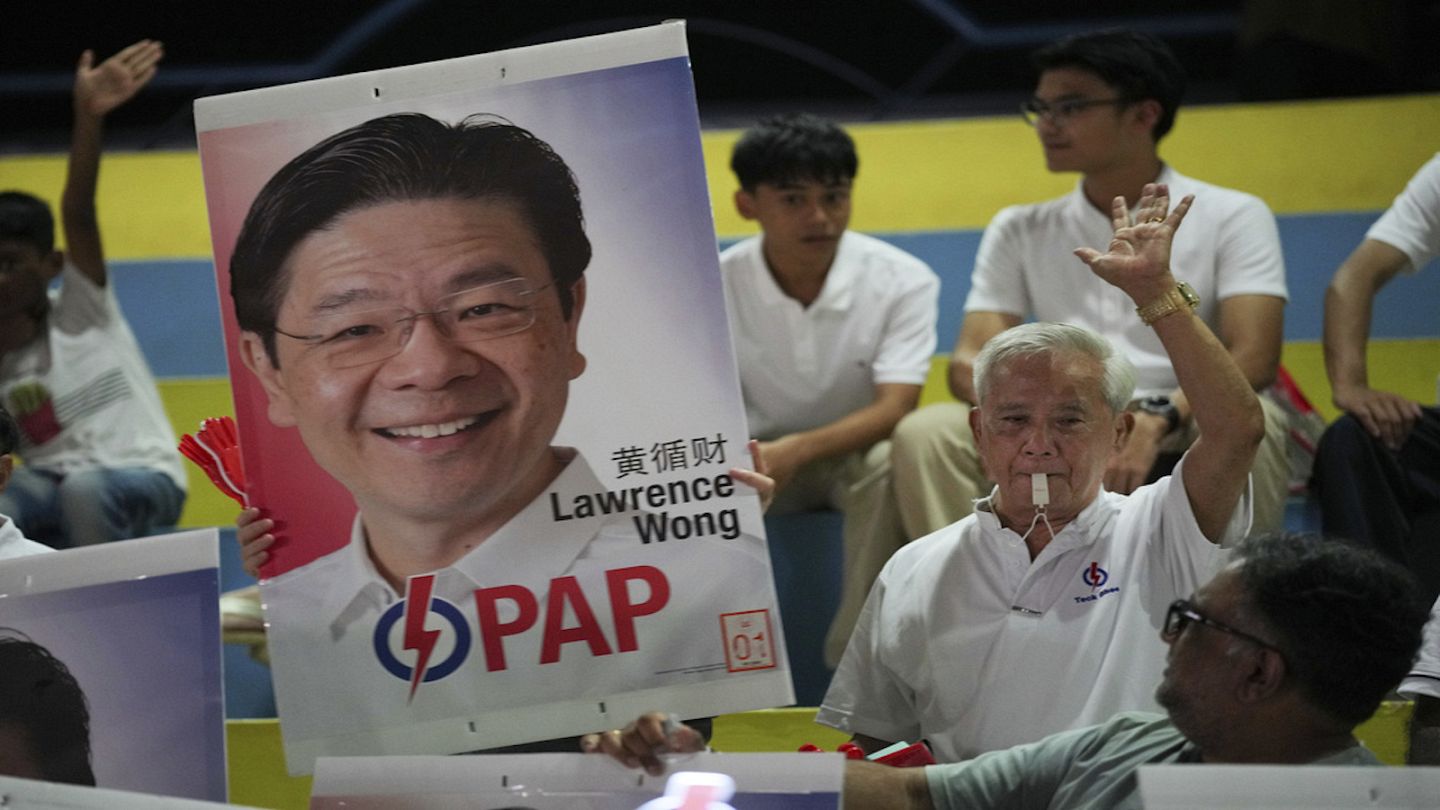Singapore's ruling party wins another landslide in general elections extending its 66-year rule
The result is expected to bolster the leadership of Prime Minister Lawrence Wong, who took office over a year ago.
Singapore's long-ruling People's Action Party extended its 66-year unbroken rule with yet another landslide victory in Saturday's general elections after the Election Department declared it the winner of the key polls.After the completion of vote counting, the Election Department announced that the PAP had won 82 parliamentary seats. The party had earlier secured five seats without opposition, bringing its total number of MPs to 87. The count also showed the opposition Workers Party maintained its 10 seats.Before the announcement, supporters of the PAP, which had ruled Singapore since 1959, gathered at a stadium waving flags and cheering in an early celebration.The result is expected to bolster the leadership of Prime Minister Lawrence Wong, who took office a year ago.“The results will put Singapore in a better position to face this turbulent world,” Wong said.Wong added that he was humbled and grateful for the solid mandate for the PAP. He, however, acknowledged voters’ desire to have more alternative voices in government but said a strong PAP team was needed to tackle challenges ahead.The 52-year-old prime minister succeeded Lee Hsien Loong to become the city-state's fourth leader. Lee stepped down in May 2024 after two decades as prime minister but remained in the cabinet as senior minister. Lee's retirement ends a family dynasty that was started by his father, Lee Kuan Yew, who was Singapore's first leader and built the former colonial backwater into one of the world's richest countries.As the country's Prime Minister and Finance Minister, with a US training, Wong, an economist, has a strong mandate to steer trade-dependent Singapore through the uncertainty caused by rising tariffs imposed by US President Donald Trump.The US administration's announcement on tariffs has led the Singaporean government to lower its trade forecast and warn of a possible recession.PAP maintains its hold on powerThe PAP is seen as a beacon of stability and prosperity, but tight government control and the rising cost of living in one of the world’s most expensive cities have also led to growing unhappiness, especially among younger voters. Widening income disparity, increasingly unaffordable housing, overcrowding, and restrictions on free speech have relatively weakened its previously ironclad support.Its share of the popular vote slipped to a near-record low of 61% in the 2020 elections, down from nearly 70% in 2015. The opposition says that a greater presence in parliament would allow for a more balanced political system and greater accountability but has often been hamstrung by a lack of resources and fragmented support.Wong has sought to revive support for the PAP by bringing in 32 new faces as several veterans of the party withdrew. He has attempted to engage younger voters through social media and promised to strive for a more balanced and inclusive Singapore.


